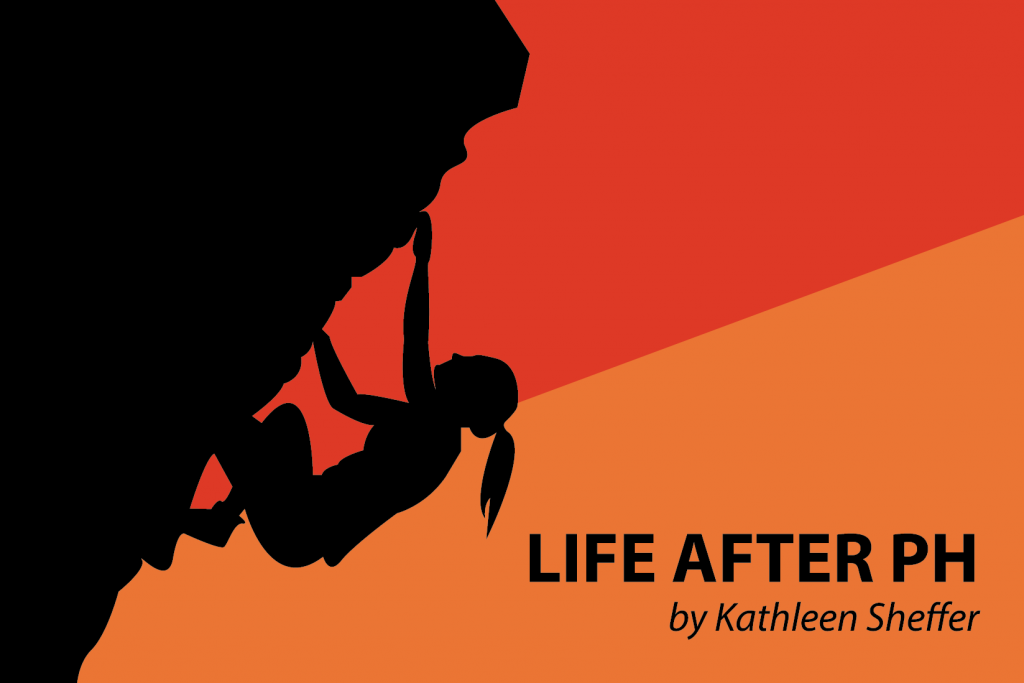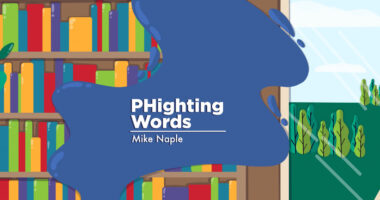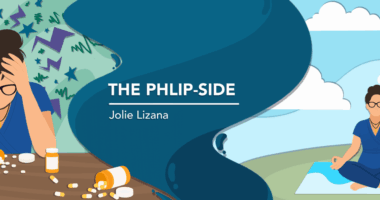September Brought Grief and Heavy Hearts

Claire Wineland’s death on Sept. 2 set the tone for the month. Great losses in my communities clouded September.
Claire suffered a stroke after a double-lung transplant. She was a brilliant young woman with a gift for public speaking, and she had cystic fibrosis. Her story was highly publicized, but if you haven’t heard it, you can read more here. I also recommend watching this video. It’s absolutely worth 30 minutes of your time.
September was brutal, bookended by Claire’s and Serena’s deaths. Serena Lawrence is the reason I write this column. We met in person on Aug. 20, and she passed away on Sept. 26. You can read more about her here.
I haven’t been able to write because I don’t have a positive spin for this.
Discuss the latest research in the Pulmonary Hypertension News forums!
I haven’t been able to write because I don’t know where to begin. With an 800-word limit, I don’t have room to describe each of the people I’ve lost recently. Camp Taylor, an organization I’ve been involved with for 15 years, lost two campers to heart disease last month. Stacey Collver, a spunky, rock-climbing, double-lung transplant recipient who I crossed paths with at Stanford, passed away mid-month.
Wake me up when September ends, I texted my friends.
I keep telling myself this is the price of surviving. Witnessing death and experiencing grief. At 25, I feel more like a 95-year-old woman lamenting about having outlived all of my friends. The sheer number of deaths I’ve lived through is astounding.
It makes sense, I suppose. Pulmonary hypertension came into my life almost 19 years ago. The life expectancy numbers were dismal in 2000, the year of my diagnosis. Though they’ve improved since, I’m not exactly jumping for joy at the updated statistics.
As I became more and more involved in the community, I had more and more friends and acquaintances lose their battle with pulmonary hypertension. That’s what we call it — losing a battle. Facebook profile pictures change to a purple ribbon with angel wings and their name. “Breathe easy,” we say. There’s a system in place. Serena knew it. In her last social media post, she wrote: “At the end of this, please don’t say I lost my fight or battle with some disease, because I didn’t. (No body does.) Death is just another part of the journey, unfortunately.”
I lost my first close “PHriend” when I was 14. Eleven years later, I’ve lost count. Hannis, Becky, Julian, Lauren, Melinda, Amelia, Izzy, Katie Grace, Katy, Joshua, Stuart, Maddie, Tiffany, Mark, Sean, Kirsten, Serena. Those are just the PHers I’ve met in person; I hear about others through social media. Maybe we were Facebook friends, maybe we weren’t. It’s always a reminder of other losses and how deadly this disease is. My heart hurts for my friends’ loved ones. I worry about myself and my family.
How can this be sustainable? I don’t want to become numb to death, but I also don’t know how to survive if I let myself feel the weight of it all.
Maybe the rational choice is to stop seeking out other people with chronic illness. But I feel strongly that I need to form friendships with people who understand. We share coping strategies, the occasional bottle of supplements (thanks, Brad, for those ferrous sulfate tablets), and dark humor that makes my healthy friends grimace.
My therapist suggested a way to practice mindfulness each time I learn about a new loss. She recommended I stop whatever I’m doing and take a few minutes to check in with myself, paying attention to how I feel physically and emotionally. Sounds great, right?
“I can’t do that,” I told her.
At a bar with friends. In the car, driving. Twenty minutes before an AP History exam. Death is so prevalent in my life, and it hardly ever comes when I feel I have time to grieve.
How can this be sustainable? I don’t have an answer or a nice way to tie up this post. How do you honor losses while living with hope? How do you take care of yourself in times of grief? Chat with me in our forums.
***
Note: Pulmonary Hypertension News is strictly a news and information website about the disease. It does not provide medical advice, diagnosis, or treatment. This content is not intended to be a substitute for professional medical advice, diagnosis, or treatment. Always seek the advice of your physician or other qualified health provider with any questions you may have regarding a medical condition. Never disregard professional medical advice or delay in seeking it because of something you have read on this website. The opinions expressed in this column are not those of Pulmonary Hypertension News or its parent company, Bionews Services, and are intended to spark discussion about issues pertaining to pulmonary hypertension.









Dorothy Brommerich
Are there different stages of PAH that you go thru before you get real bad?
Joanna
I have been diagnosed with scleroderma and PAH. Scleroderma diagnosis came in 2011 and PAH diagnosed in 2016. I worry and get anxious every time i read the statistics on survival for one or both diseases and would like more information on them as well. I am on oxygen therapy 24/7 as well as, medication and IV Flolan.